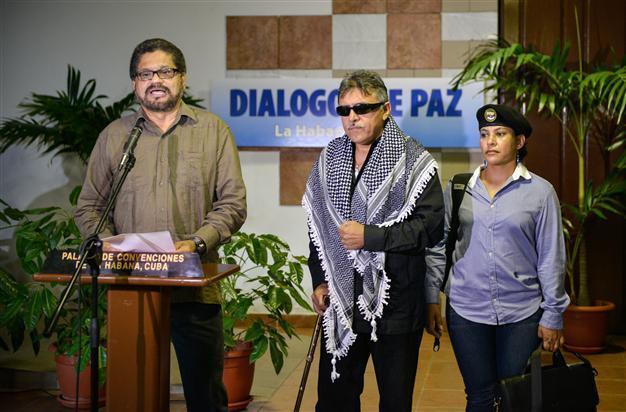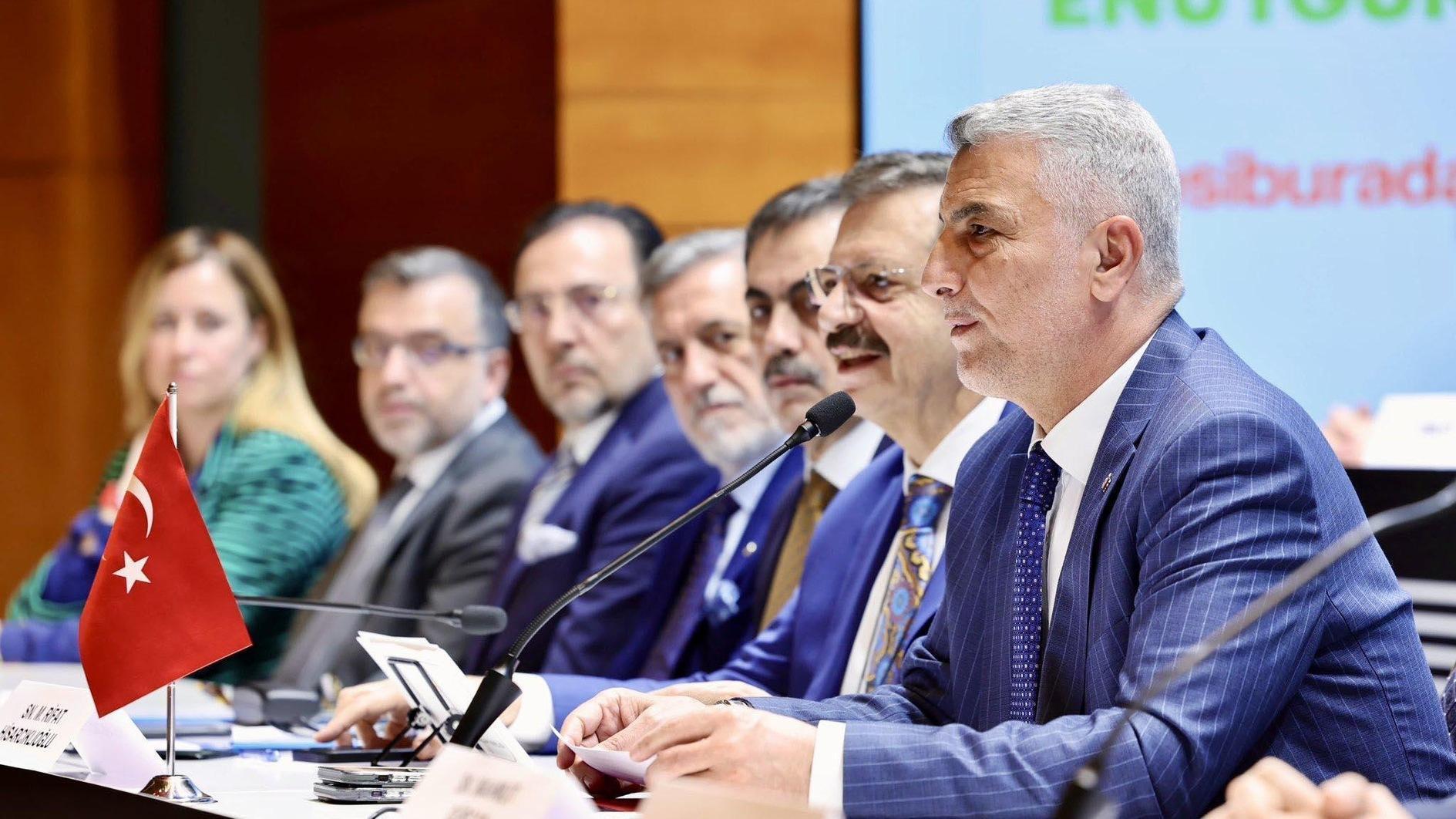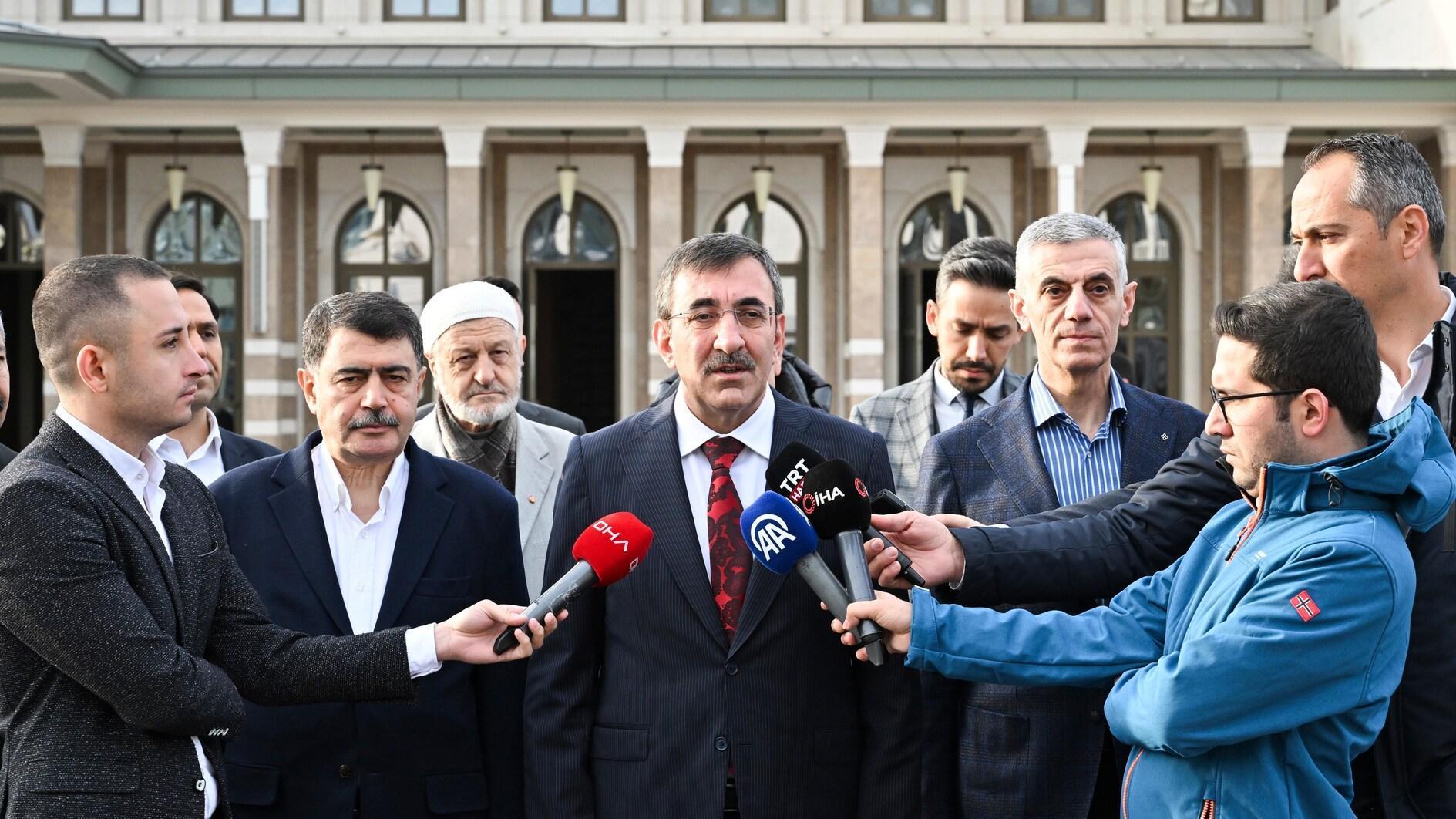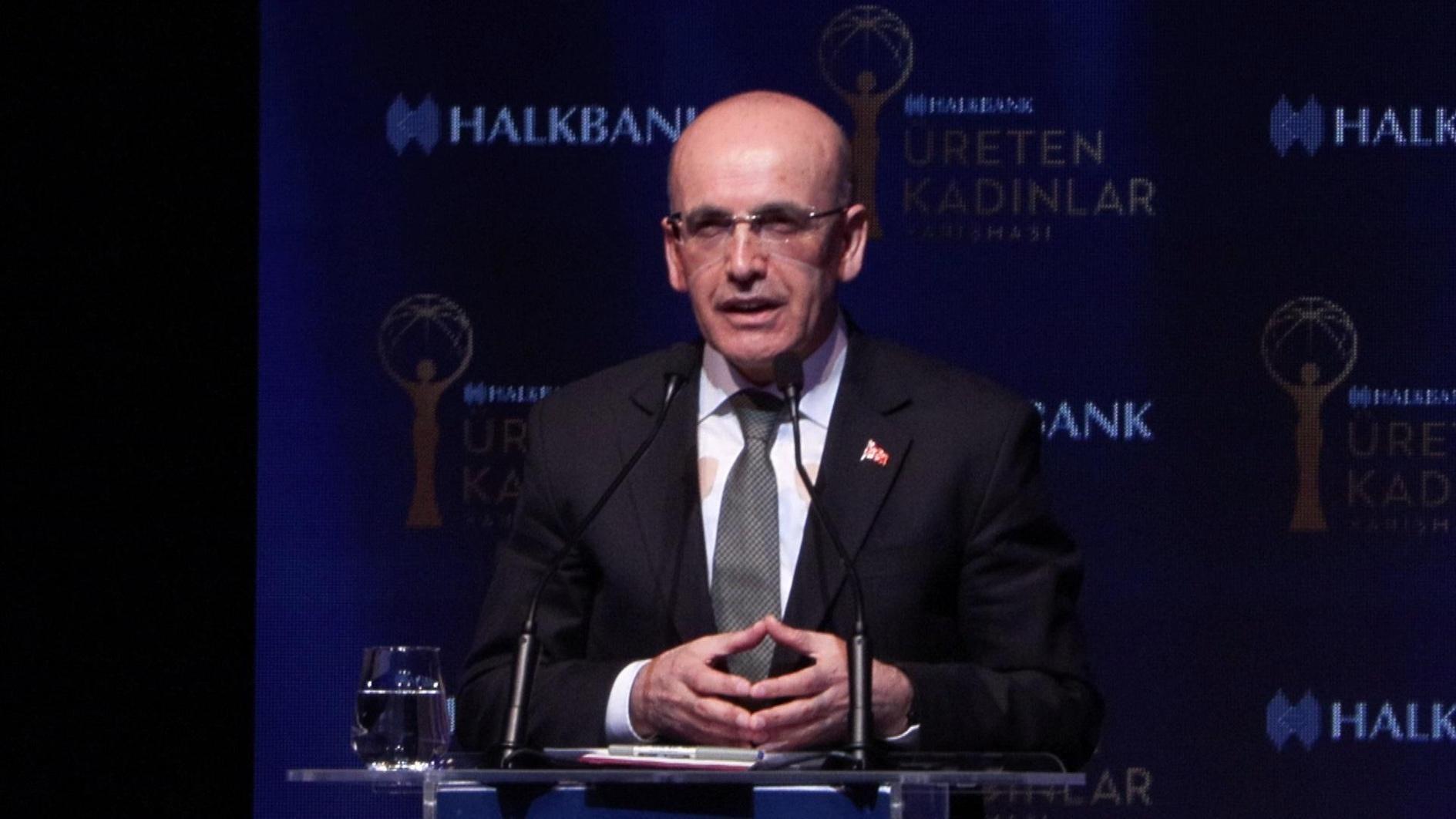Colombia peace talks suspended after FARC call for pause
BOGOTA - Reuters

Revolutionary Armed Forces of Colombia (FARC) Commander, Ivan Marquez (L), gives a speech at the Convention Palace in Havana as peace talks with the Colombian government resume on Aug. 19. AFP photo
Colombia's government and Marxist FARC rebels suspended their participation in peace talks in Cuba on Aug. 23, complicating nine months of painstaking negotiations aimed at ending five decades of bloodshed.President Juan Manuel Santos called his negotiating team home from Havana hours after the FARC, or Revolutionary Armed Forces of Colombia, said it would "pause" the talks to review a government plan to put any peace deal to a popular vote.
It was the first interruption to the talks that began last November and a sudden dent to hopes the two sides would soon see the difficult talks through to the end, after recent comments from the FARC had given cause for optimism.
While the halt to talks will worry Colombians, analysts said there is little reason to suspect the two sides will not resume talks again.
Santos, who bet his political legacy on bringing peace to the Andean nation, sent a bill on Thursday to Congress that calls for a referendum on any peace accord during national elections in either March or May next year.
"The FARC has decided to pause the discussions at the table, to focus exclusively on analyzing the implications of the government's proposal," Pablo Catatumbo, one of the lead FARC negotiators, said in a statement.
Santos said discussions would only resume when the government considered it appropriate. "We are going to assess their statement, their behavior toward the government initiative (which aims) to accelerate the solution of the conflict," Santos said in a brief statement at Bogota's military airport.
"In this process, the one who makes pauses and establishes the conditions, is not the FARC."
The FARC has said repeatedly it sees a constituent assembly as the best way to enshrine the tenets of the peace accords in the country's constitution and does not trust that a referendum would protect agreements reached in Havana.
Colombians are desperate to see an end to the war that has killed more than 200,000 people and displaced millions since it began in 1964. Santos is also eager to negotiate peace with the National Liberation Army, a smaller rebel group known as the ELN. He has said he wants the FARC peace accord by November.
'Limited patience'
In the final year of his four-year term, Santos has ruled out a constituent assembly and said the Colombian people must support any deals reached before an end to the war can be declared. Santos has not said if he will seek re-election.
He accepted the FARC's right to study the government proposal, but urged the rebel negotiators not to take too long.
"The FARC has left the negotiating table to study the proposal and it's legitimate and valid that it should, but time is passing and the patience of the Colombian people has a limit," Santos said earlier on Aug. 23.
Some analysts say the unilateral decision by the government to seek a referendum goes against the spirit of the initial agreement that led to talks, in which it was clear both sides would decide jointly how to ratify any deal.
"This incident weakens the peace process," said Carlos Lozano, political analyst and editor of the left-leaning weekly magazine Voz. "But it is not at risk because it is just an incident and can be overcome."
The FARC has battled a dozen governments since it began as an agrarian struggle against rural inequality. Even while it has been severely weakened in the past 10 years by a heavy U.S.-backed offensive, it remains a formidable threat to the government and civilian population.
More than three dozen FARC commanders are in Havana working through a five-point agenda involving agrarian reform, reparation to victims, stemming the illegal drug trade, an end to the conflict and the FARC's inclusion in the political system.
The disruption in talks comes on the heels of several comments from the FARC in recent days that appeared to show irritation with comments from Santos, but the group also recently expressed optimism that progress had been made.
In a recent interview, Santos told Reuters the rebel leadership could face jail terms if peace were achieved. He also said FARC negotiators would need to return to Colombia's jungle and face capture or death in battle if talks collapse.
















